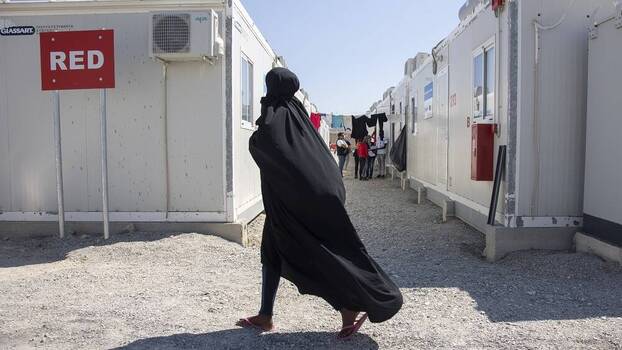
Trafficking in human beings, defined as the illegal transport of individuals by force or deception for the purpose of labour, sexual exploitation, or financial gain, is a widespread crime that involves serious human rights violations, often resulting in lasting harm to those affected. While human trafficking can happen to anyone, pre-existing vulnerabilities such as socio-economic status, immigration status, and lack of social networks make people more susceptible to exploitation. In this way, asylum seekers and other people on the move are particularly at risk of being trafficked, as they are often far from familiar surroundings, at risk of social isolation, and may lack access to basic resources and livelihood opportunities.
The Greek NGO I Have Rights (IHR) has worked with 53 clients who are survivors of human trafficking (hereinafter the 53 survivors), representing 13 percent of IHR’s total client base. If the rate of survivors of human trafficking among IHR’s clients is representative of the wider population of people on the move on Samos, then in 2022 approximately 285 survivors of human trafficking entered Samos, reaching nearly the same amount of the 358 survivors referred to the Greek National Referral Mechanism for the Protection of Human Trafficking Victims (NRM) in the whole of Greece for 2022.
Moreover, the majority of survivors referred to the NRM in 2022 were asylum seekers, representing 245 out of 358 (68 percent) referred persons, with the most common residence for referred survivors being facilities for asylum seekers, including Closed Controlled Access Centres (CCACs) and Reception and Identification Centres (RICs). This data demonstrates the importance of identifying survivors during reception and asylum procedures and how Samos, as the second largest hotspot island in Greece, and the Samos CCAC in particular, represent a key opportunity for survivors to be identified and for their rights to be vindicated.
In this report, IHR demonstrates that this opportunity is severely missed on Samos. IHR highlights the systemic failures in the treatment of survivors of human trafficking on Samos, how this leads to violations of their rights and Greece’s legal obligations under national and international law, including the obligation to prevent and combat trafficking in persons and to protect survivors of trafficking in persons. This is concerning due to the presence of various state and EU bodies in the CCAC, including the Reception and Identification Service (RIS), the regional Greek Asylum Service (GAS), the Hellenic Police, the European Agency for Asylum (EUAA), Frontex, and Commission Representatives.
The report Unidentified, Unrecognized, and Denied Support, a new report from IHR published with support from the Rosa Luxemburg Foundation’s Athens Office, contributes to existing evidence, which demonstrates the inhumanity of CCACs. While the focus of this report is survivors of human trafficking, by no means does IHR believe that the CCAC is unsuitable only for “vulnerable” people. Instead, the report presents evidence of the treatment of a particular group in the CCAC. It shows that even the rights of groups that are legally recognized as vulnerable and entitled to a variety of legal protections are violated. This stands in stark contrast with claims of the CCAC’s humane and rights-compliant approach to migration. Therefore, this report should serve as a warning against plans in the European Commission’s New Pact on Immigration and Asylum to use closed centres like the CCAC as a blueprint for the accelerated reception and asylum processing of people on the move at the EU’s borders.
CCACs should not be used for the accommodation of anyone, let alone vulnerable people.